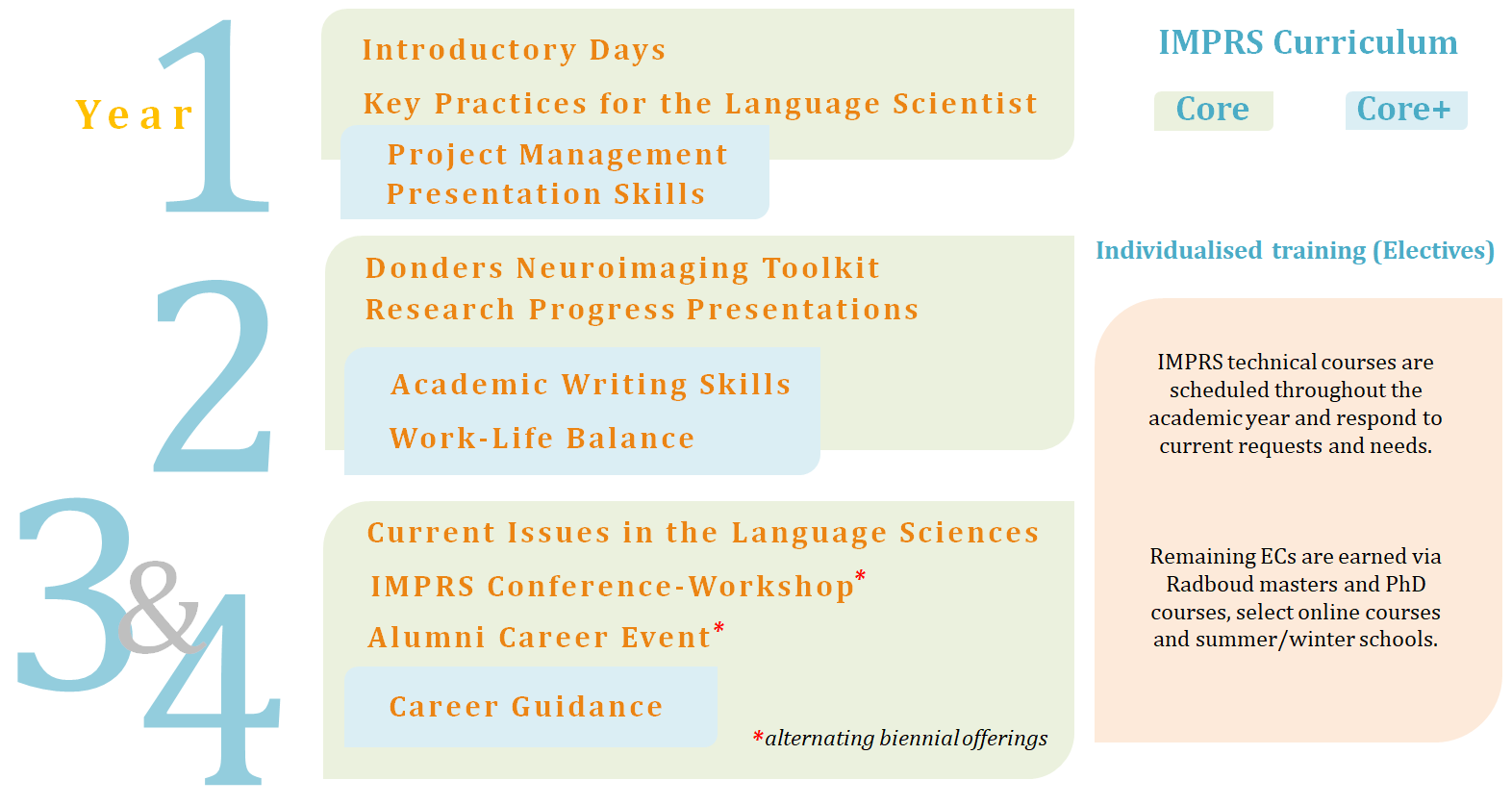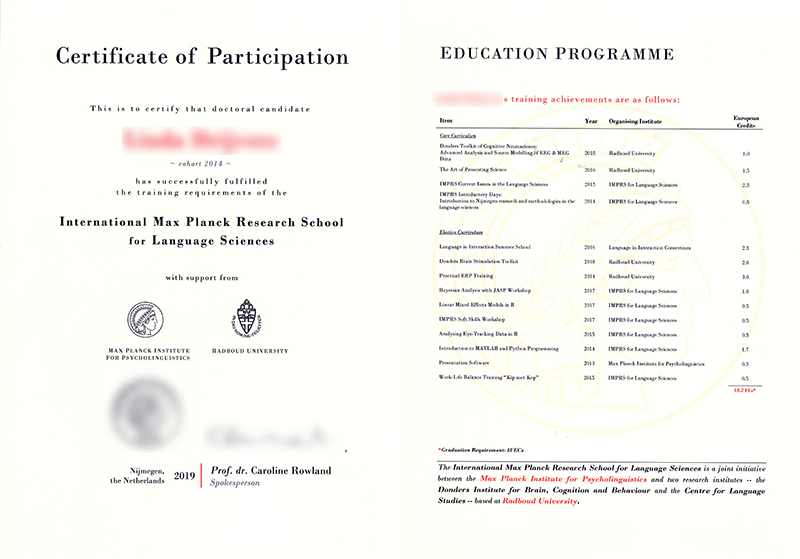The Education and Training Programme is at the heart of the IMPRS for Language Sciences, providing the core of students’ participation in the research school. The education and training programme supplements the training that students get in their research work at (weekly) lab meetings, at conferences and lectures.
The first guiding principle of the Education and Training Programme is that it is flexible to individuals’ needs—and their needs are diverse, with students backgrounds from the humanities, social sciences and natural sciences bringing to the school diverse training in psychology, linguistics, neuroscience, artificial intelligence, physics, genetics, and more. Training should both support students’ research work and give them a deeper, more interdisciplinary perspective on the language sciences. The second principle is that all the students receive a foundation level of training in important soft skills, giving them the skillset they need to continue into successful careers.
- The Education and Training programme
-
The IMPRS education and training contains both a core/core+ curriculum and individualized training (electives) that cater to the needs of individual students. Courses in both strands count towards the 18-ECTS credit requirement.
The IMPRS Core Curriculum covers training in interdisciplinary issues and soft skills and is common to all students. This way, we ensure that each student possesses the basic knowledge and skills needed to successfully complete the doctoral dissertation whilst building up a solid foundation in the language sciences. IMPRS Core+ Curriculum is recommended to those who wish to maximise their training with us, and is an excellent basis for planning their 4-year educational goals.The individualized training (Electives), tailored to individual needs and interests, allows students to gain the remainder of their required credits by filling gaps in their disciplinary or technical knowledge and enables them to pursue other relevant interests.
The IMPRS Coordinator provides guidance and administrative support to students and their supervisors on the subject of appropriate training. The decision about which courses to take is made by the student after consultation with the supervisors of their research. The Coordinator is also available to offer advice on selecting coursework benefiting not just their doctoral projects, but also in terms of enhancing their career prospects. Specifically, students are encouraged to take full advantage of their doctoral training to diversify their skills and knowledge base. In future job applications, their IMPRS Certificate of Participation should serve especially as an endorsement of their unique competences.
Besides IMPRS courses, our students have full access to Radboud University offerings and other course providers. A representative selection is displayed below:
IMPRS courses
- Bayesian Estimation & Regression
- Linear Mixed Effects Regression in R
- Introduction to MATLAB and Python Programming
- GitHub workshop
- LaTeX Workshop
- Open Science
- Grant Writing
- Critical Peer Review
- Work-Life Balance
Radboud University Master’s courses:
- IMPRS Certification
-
At the end of their doctoral project and upon successful completion of our education programme requirements, the student is awarded an IMPRS Certificate of Participation. This certificate bears the official stamp of the Max Planck Institute and the signature of the IMPRS Spokesperson. It lists all the training that the student has completed during their doctoral studies.


Share this page